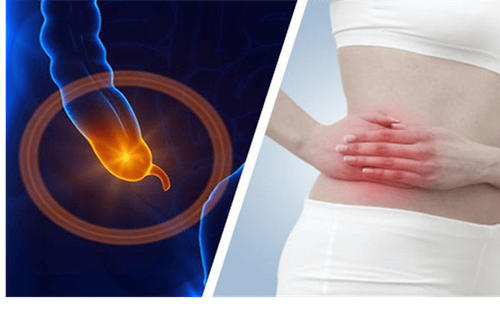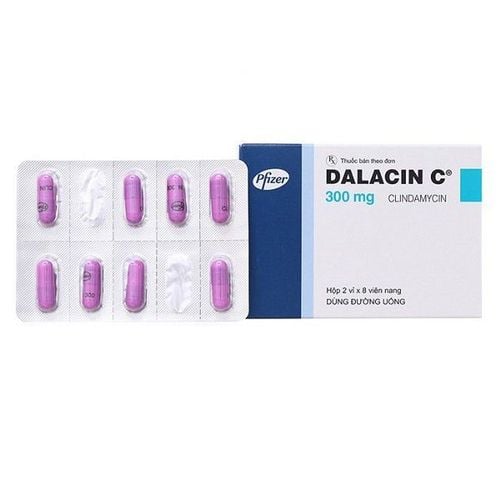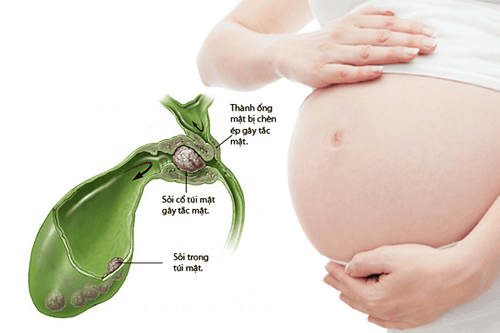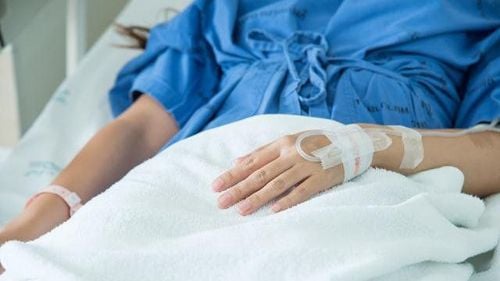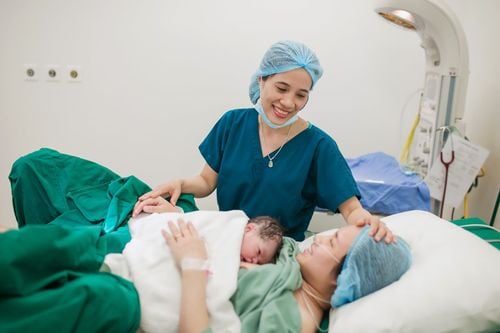The article was professionally consulted by Master, Doctor - Gastroenterologist - Department of General Surgery - Vinmec Ha Long International General Hospital.
Patients may experience different complications after laparoscopic appendectomy depending on the type of surgery and their health condition. Doctors also warn about the following signs to monitor and intervene immediately before the condition worsens and becomes life-threatening.
1. Overview of laparoscopic appendectomy
First, the patient is anesthetized with endotracheal intubation in a supine position on the operating table. The doctor will place 3 Trocars in the patient's abdomen. One Trocar is placed in the area next to the navel to use the endoscopic camera, and the remaining two Trocars are used to use the instruments to perform the operation.
During laparoscopic surgery, the doctor will explore the peritoneal cavity and the organs in the abdomen, assess the condition of the appendix, and check from the mesentery to the base. Then, the doctor uses an endoscopic electric knife to stop the bleeding of the mesentery (sometimes the electric knife can be replaced by other tools such as a stapler).
Next, the doctor ties the suture at the base and removes the appendix. Before removing the appendix, the doctor will drain the dirty fluid in the peritoneal cavity.
When the surgery is finished, the doctor will close the Trocar positions and suture the incision. The patient will then be monitored for possible complications after laparoscopic appendectomy.
2. How do patients usually feel after laparoscopic appendectomy?
After laparoscopic appendectomy, patients often experience the following conditions:
- Abdominal pain: This is a common symptom after surgery and often occurs because the anesthetic gradually loses its effectiveness, causing the patient to feel pain after surgery. This abdominal pain will usually subside after a while and can be controlled with pain relievers as prescribed by the doctor.
- Abdominal distension: Due to the doctor pumping air into the abdomen during surgery. If the patient can still eat and drink normally, has no fever, mild abdominal pain, no difficulty breathing, normal stools and no other abnormal signs, then there is no need to worry.
In addition, after surgery, patients may also experience nausea, dizziness, headache, difficulty urinating, little urine, etc. However, these symptoms usually subside and disappear after about 3-5 days.
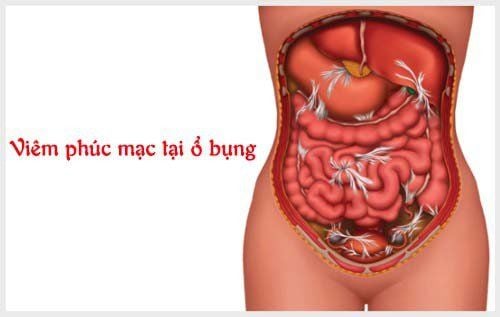
3. Abdominal pain after appendectomy
After laparoscopic appendectomy, many patients often experience abdominal pain and this is very common. In fact, after about 1 - 3 weeks, patients can fully recover and return to normal life, however, the recovery rate may vary for each person.
Postoperative pain is a natural response of the body to the intervention process. However, the level of pain can help the doctor assess whether there is any serious damage?
If the patient feels back pain after surgery but does not have a cough, fever, or signs of redness or discharge from the surgical wound, they can rest assured. After surgery, early mobilization is often encouraged to avoid complications such as paralytic ileus and pneumonia, as well as to help the patient feel more comfortable. Patients are usually allowed to eat normally after about 6-8 hours, as long as there is no nausea and vomiting.
After surgery, the doctor will prescribe a pain reliever to help the patient feel more comfortable. The patient is at risk of shoulder pain later due to the use of CO2 gas injected into the abdomen during surgery.
However, there are cases of complications after laparoscopic appendectomy such as wound inflammation or necrosis, which can prolong the treatment time.
If the patient has the following complications after laparoscopic appendectomy, call an ambulance and take the patient to the doctor for timely examination and treatment:
- Dizziness, fainting, severe chest pain, or difficulty breathing, coughing up blood.
- Abdominal discomfort and inability to drink water.
- Signs of infection such as red, painful, swollen incision, pus in the wound, etc.
- The incision is open.
- Pain and swelling in the groin, thighs and calves.
Many patients may experience severe abdominal pain after discharge. This may be a complication due to severe damage to the appendix tip, the remaining appendix becomes necrotic, forming an abscess.
In this situation, if hospitalization and diagnosis are not made promptly, the patient may develop peritonitis, a dangerous complication that can be fatal.
If peritonitis occurs, the patient will need to be treated with antibiotics. This is a fairly dangerous complication after laparoscopic appendectomy, which often occurs when the appendix ruptures, leading to pus and fluid spilling into the abdominal cavity.
Peritonitis often occurs in the elderly, children and pregnant women. A ruptured appendix also poses a risk of blood infection.
4. Abdominal distension
After laparoscopic appendectomy, the patient may experience abdominal distension due to CO2 gas being pumped into the abdomen and shoulder pain. Usually, the patient can rest assured if there is no fever, can eat and drink normally, has normal stools and only feels mild abdominal pain, without other abnormal symptoms.
Abdominal distension may also be a post-operative digestive disorder, due to decreased peristalsis and contraction of the intestine after the intervention, and this condition will usually gradually subside. The doctor may suggest using a mild laxative, in addition, the patient needs to follow the doctor's instructions when using pain relievers.
If abdominal pain continues to increase, especially in episodes, or if there are signs of intestinal obstruction, including the appearance of intestinal loops in the abdomen, emergency care is required.
If the patient has symptoms such as fever, blood in the stool, black stool, swollen surgical wound, pus, discharge, then it is possible to suspect the appearance of dangerous complications such as: peritonitis, intestinal obstruction, intestinal adhesion, Douglas pouch abscess, abdominal wall abscess…
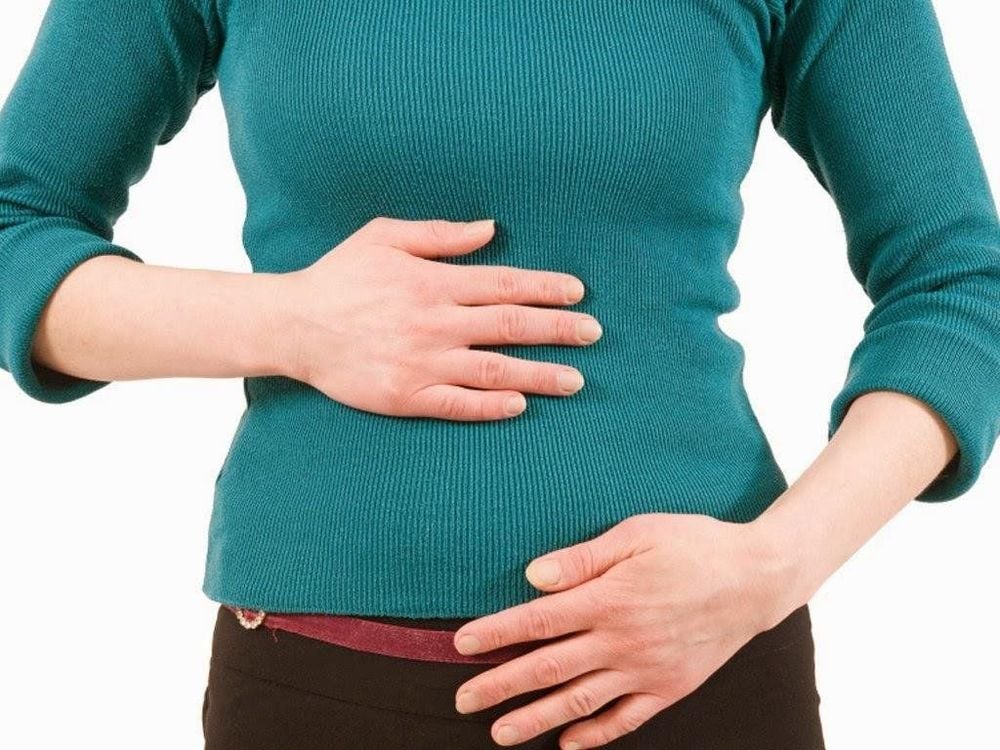
5. Other complications after laparoscopic appendectomy
Although laparoscopic surgery is an advanced, modern technique, there is still a certain level of risk. Below are some common complications after laparoscopic appendectomy:
5.1 Risk of infection
Signs of infection after surgery include: fever, redness and swelling at the surgical site, bleeding or foul-smelling discharge, etc. In addition, infection often does not respond to pain relievers. In this condition, the patient needs to be taken to the emergency room immediately for timely intervention to avoid life-threatening risks.
5.2 Prolonged bleeding
Prolonged bleeding is also one of the complications after laparoscopic appendectomy. Bleeding usually occurs at the cecum (where the appendix is attached).
The patient may experience symptoms such as nausea, abdominal cramps and bloating, and black stools. Prolonged bleeding can cause severe anemia and directly threaten life.
6. Ways to help prevent complications
There are many measures to prevent complications after laparoscopic appendectomy that can help protect the patient's health and life. Here are some measures that people can refer to:
- Comply with the instructions and medical examinations before surgery as required by the doctor. Provide complete information about medical history, current health status, and medications that have been and are being used recently.
- If there is an infection in the skin or any other organ, the doctor will treat the infection before performing surgery.
- Limit the consumption of alcohol, stimulants and stop smoking at least 5 days before surgery.
- If the doctor assesses the risk of infection is high, prophylactic antibiotics can be used both before and after surgery.
- Follow up after surgery to evaluate the surgical wound, the patient's health and recovery status, to detect early risks of complications.
- Clean hands before and after touching the surgical wound. Choose loose, comfortable clothing made of soft fabric to avoid rubbing against the wound.
- After surgery, limit strenuous exercise and follow the instructions on wound hygiene from medical staff.

Complications after laparoscopic appendectomy are a high-risk situation that can occur. Therefore, patients need to pay attention to abnormal signs of the body after surgery so that timely intervention can be given.
Complying with the doctor's instructions and post-operative care procedures is a very important factor to minimize the risk of unwanted complications.
Vinmec International General Hospital is applying laparoscopic appendectomy to successfully treat thousands of cases of appendicitis.
With outstanding advantages in facilities and modern machinery systems, Vinmec is increasingly appreciated not only in laparoscopic appendectomy but also in many other techniques.
The team of doctors performing the surgery are all highly specialized, experienced, and ready to handle any unexpected complications that may arise. After surgery, patients will be closely cared for and monitored, and will rest in a high-quality, international-standard hospital room, providing maximum support for the recovery process.
To arrange an appointment, please call … or make your reservation directly HERE. You may also download the MyVinmec app to schedule appointments faster and manage your reservations more conveniently.
Please dial HOTLINE for more information or register for an appointment HERE. Download MyVinmec app to make appointments faster and to manage your bookings easily.






